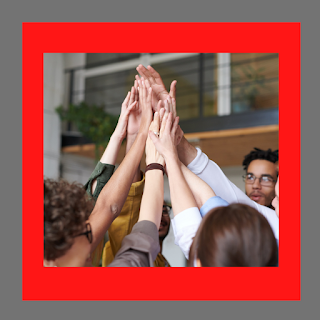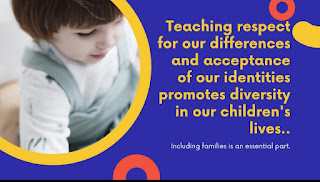Teamwork and collaboration in the early childhood field
As we move forward to our professional goals developing effective communication and collaboration skills helps us to be better persons and professionals. Practicing collaboration and communication demonstrate and develops our abilities and strengths as leaders and advocates on behalf of children and families. Collaboration is a fundamental key to achieving our goals!
Working in teams
As early childhood professionals and advocates, we have to work in teams. Children and families benefit when early childhood professionals collaborate for the same purpose. Millions of children need us! Education is the best investment they need to support their healthy development and growth.Some examples of teamwork and collaboration are listening for the contributions and opinions of colleagues and families, accepting different perspectives, even if we do not agree, sharing ideas and concepts, facilitating understanding between team members, embracing diversity, connecting with others, acting with integrity, and being kind, respectful, and empathetic with others.
Teamwork and collaboration
Teamwork and collaboration involve effective communication skills. These skills make us responsible for thinking and making decisions creating relationships through trustfulness, fairness, integrity, and respect for ourselves and others with the purpose to improve the well-being of children, families, and the people with who we collaborate.
Values such as respect, acceptance, empathy, and fairness need to be present. It entails working with diversity and equity. It involves presenting information openly, accurately, and regularly among partners practicing listening skills, consensus building, and collaborative problem-solving. The benefits of teamwork and collaboration are present when members open their minds to learn from one another, listen to others, and work purposely for conflict resolution.
As advocates in the early childhood field, we need to develop leadership skills demonstrating the capacity and ability for working with others using effective communication, collaboration, and listening skills to learn, practice, and contribute to the field.
Learn with two rivers. (n. d.). Collaboration and communication. Retrieved from https://www.learnwithtworivers.org/collaboration--communication.html
Molloy, P., Fleming, G., Rojas Rodriguez, C., Saavedra, N., Tucker, B., & Williams, D. L. (1995). Charting progress toward collaboration. Retrieved from http://www.sedl.org/pubs/fam01/charting.pdf
Values such as respect, acceptance, empathy, and fairness need to be present. It entails working with diversity and equity. It involves presenting information openly, accurately, and regularly among partners practicing listening skills, consensus building, and collaborative problem-solving. The benefits of teamwork and collaboration are present when members open their minds to learn from one another, listen to others, and work purposely for conflict resolution.
As advocates in the early childhood field, we need to develop leadership skills demonstrating the capacity and ability for working with others using effective communication, collaboration, and listening skills to learn, practice, and contribute to the field.
References
Gratton, L., & Erickson, T. J. (2007). Eight ways to build collaborative teams. Harvard Business Review, 85(11), 100–109.Learn with two rivers. (n. d.). Collaboration and communication. Retrieved from https://www.learnwithtworivers.org/collaboration--communication.html
Molloy, P., Fleming, G., Rojas Rodriguez, C., Saavedra, N., Tucker, B., & Williams, D. L. (1995). Charting progress toward collaboration. Retrieved from http://www.sedl.org/pubs/fam01/charting.pdf
_______________________
Diana A. Rivera is an Early Childhood Educator, with graduate studies in Educational Psychologist, and author of Be the voice for children. Diana believes and commits to the healthy development, growth, well-being, and learning of all children. The blog posts share ideas and knowledge about educational psychology, child and brain development, parenting, diversity, effective teaching practices, early childhood education, and care to support the empowerment of children and families.









